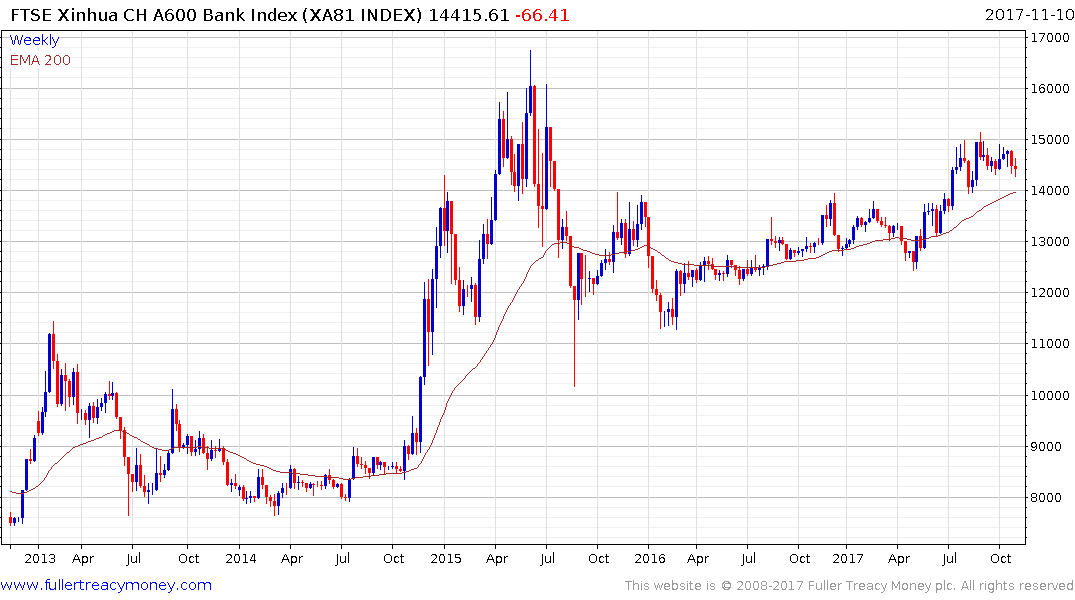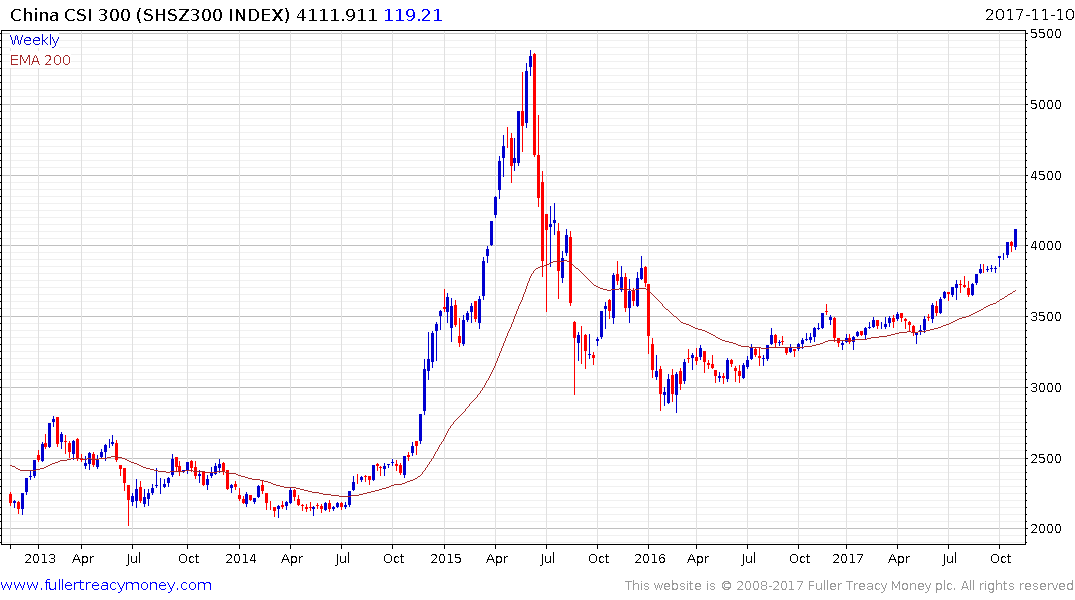Foreign Banks Invited to End of the Credit Party
This article by Tom Orlik for Bloomberg may be of interest to subscribers. Here is a section:
In the 2000s, China invited foreign banks into the domestic market, as it tried to manage down a legacy of bad loans. HSBC bought a share of Bank of Communications, Royal Bank of Scotland took a minority stake in Bank of China and Bank of America purchased a piece of China Construction Bank – helping them on their way to listing. Fast forward to 2017 and the bang is bigger. Based on an announcement Friday, limits on foreign ownership of Chinese banks and asset managers will be removed, and foreign firms will be able to take a 51% stake in securities and life insurance firms. But the aim is the same – helping clean up a financial mess, and prevent it from happening again.
Bloomberg Economics had flagged financial market opening as one of the possible deliverables from this week’s U.S. - China summit. Recognizing that the devil will be in the as-yet-unknown details, here’s our take on the implications:
There’s potential for a grand bargain here. China’s financial system will receive an influx of foreign capital and expertise.
That will help deal with the aftermath of a credit binge that has seen debt swell to 259% of GDP, and engineer efficiency gains that may help prevent a repeat occurrence. After paying the price of entry, foreign firms will get a piece of the Chinese market – the second largest and fastest growing in the world.
China has taken on a great deal of debt over the last couple of decades as the pace of infrastructure development has beaten all records. Quite what to do with it is a big question and there are three answers. However, perhaps the biggest takeaway is that the administration is taking substantive measures to tackle the problem.
The first is to encourage some sharing of risk by spreading the pool of liability. That’s what I regard as the insurance solution. The opening of the domestic market to greater foreign participation, with the various stock connect programs, and today’s increasing of the foreign holding of banks all represent progress toward the goal of spreading risk.

Importing greater scrutiny of lending practices and the efficiency gains that come with Western banking expertise represent the second string to this strategy. However, if banks with majority western ownership are less easy to borrow from how are they supposed to compete? The FTSE/Xinhua A600 Banks Index has been ranging, following its impressive breakout in July, and a sustained move below 14,000 would be required to question medium-term scope for additional upside.
The third option, if the above two fail to improve lending practices, would be to create another bad bank similar to what was created in the 1990s.
Howard Marks of Oaktree has been investing in distressed loans in China but highlights the lack of transparency in how a default will be allowed to progress as a challenge not least since foreign ownership limits don’t allow full ownership in case of a default.

The pace of the CSI 300’s advance has picked over the last couple of months and it improved on that performance this week. While somewhat overextended in the short term, a clear downward dynamic would be required to question potential for additional upside.
Back to top


